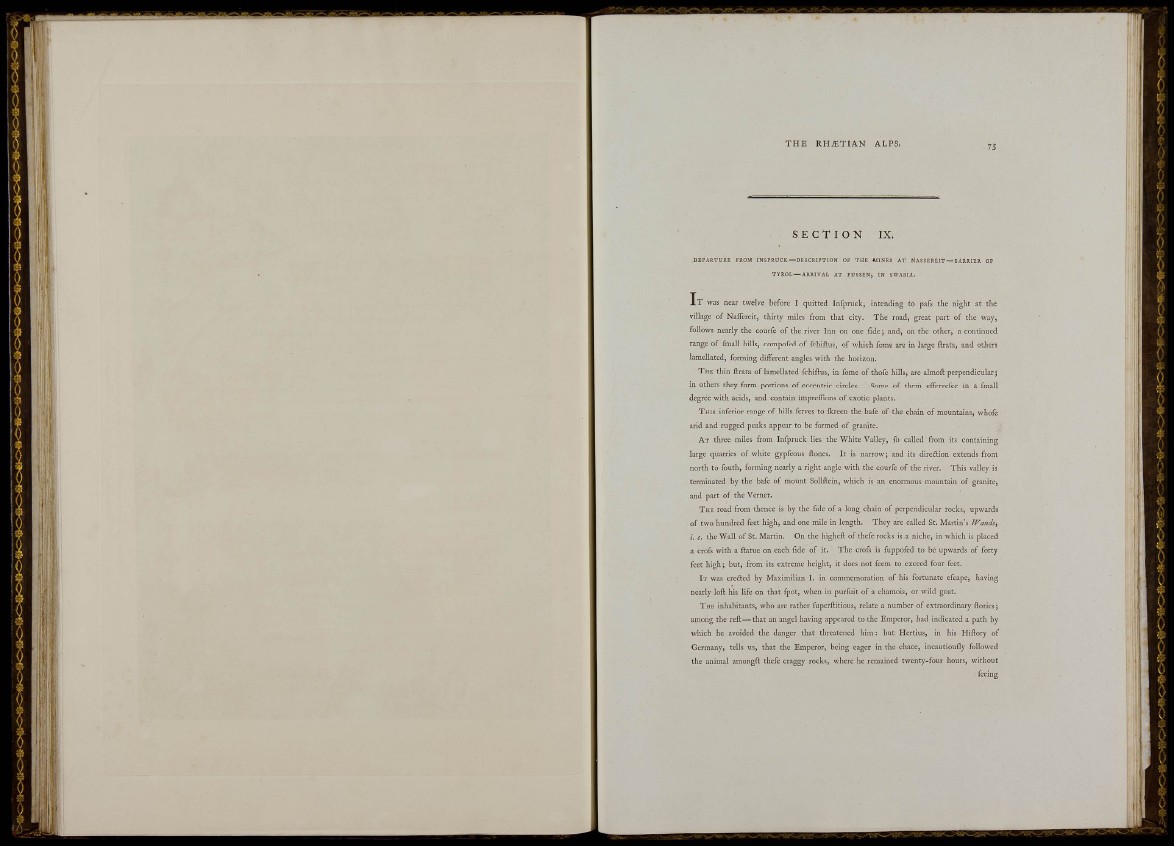
T H E RH^TÍAN ALPS.
S E C T I O N IX.
DEPARTURE FROM INSPRUCK—DESCRIF
TYROL — A R R I V A L ,
Î MINES AT NASSEREIT — B A R R I E R OF
I T was near twelve before I quitted Infpruck, intending to pafs tlie niglit at the
village of Naflcreit, thirty miles from that city. The road> great part of the way,
follows nearly the courfe of the river Inn on one fide; andj on the other, a continued
range of fmall hills, compofed of fchiftus, of which fome are in large ftrata, and otliers
lamellated, forming different angles with the horizon.
THE thin ftrata of lamellated fchiftus, in fome of thofe hills, are almoft perpendicular;
in others fîifjr fnrm prirfinns of prrpnlrir circle«. Snmi» of thfm effervefee in a fmall
degree with acids, and contain impreffinns of cxotic plants.
THIS inferior range of liills ferves to ikrecn the hafe of the chain of mountainsj whofe
arid and rugged peaks appear to be formed of granite.
AT three miles from Infpriick lies the White Valley, fo called from its containing
large quarries of white gypfeous ftones. It is narrow; and its diredion extends from
north to fouth, forming nearly a right angle with the courfe of the river. This valley is
terminated by the bafe of mount Sollftein, which is an enormous mountain of granitej
and part of the Verner.
THE road from thence is by the fide of a long chain of perpendicular rocks, upwards
of two hundred feet higii, and one mile in length. They are called St. Martin's Wands^
i. e. the Wall of St. Martin. On the higheft of thefe rocks is a niche, in which is placed
a crofs with a ftatue on each fide of it. The crofs is fuppofed to be upwards of forty
feet high ; but, from its extreme height, it does not feem to exceed four feet.
IT was ereded by Maximilian I. in commemoration of his fortujiate efcape, having
nearly loft his life on that fpot, when in purfuit of a chamois, or wild goat.
THE inhabitants, who arc rather fuperftitious, relate a number of extraordinary ftories;
among the reft—that an angel having appeared to the Emperor, had indicated a path by
which he avoided the danger that threatened him : but Hertius, in his Hiftory of
Germany, tells us, that the Emperor, being eager in the chace, incautiouíly followed
the animal amongft thefc craggy rocks, where he remained twenty-four hours, without
feeing